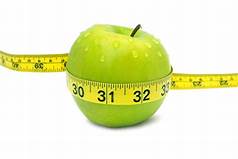
WW International, the company formerly known as Weight Watchers, recently launched an app called Kurbo which is designed to help children ages 8-18 to diet and lose weight. The app is marketed as a “health coaching” tool, but a closer look at the company’s website reveals testimonials of children losing weight and dropping BMI points, complete with “before” and “after” photos. In recent years, the words “diet” and “dieting” have been replaced with words like “wellness” and “healthy eating” in popular nomenclature. But more often than not, when people refer to “eating healthy,” they are talking about restricting calories, reducing carbohydrates, and decreasing portion sizes. In other words, dieting in pursuit of weight loss. The brilliant marketing team at Weight Watchers, aware of this cultural shift in nomenclature, re-branded themselves as WW (Wellness that Works) to stay in vogue with their client base: people living in larger bodies.
But make no mistake: Kurbo is a diet app designed to help children lose weight. Although the app is touted as being based on years of scientific research, the very existence of this app defies the best available scientific evidence, which strongly suggests that CHILDREN AND ADOLESCENTS SHOULD NOT DIET.
Why? Let me count the reasons.
Bodies are meant to be diverse in size and shape. The very notion that a child or adolescent should lose weight in order to have an acceptable body flies in the face of genetics and natural size diversity. Weight loss disrupts crucial physiological processes in the growing bodies of children and adolescents. Puberty requires significant weight gain to ensure proper development of the brain, bones, reproductive organs, and other vital body systems. Losing weight during adolescence can halt puberty, stunt vertical growth, and alter hormone levels.Dieting is not effective at producing long-term weight loss, but it reliably predicts weight gain and depression. More often than not, dieting leads to weight cycling: losing weight in the short-term but regaining weight and ending up at the same weight, or a higher weight, in the longer-term. Our bodies have evolved to protect us against famine by slowing down metabolic processes when food is scarce (such as, when we are dieting and losing weight) and ramping up hunger signals and cravings, which often leads to overindulgence or binge eating. Weight cycling is associated with negative health outcomes, including increased risk of depression. Individuals who diet frequently experience cycles of shame, guilt, and feelings of failure each time they regain lost weight.The normalization and glorification of diet culture is harmful and toxic to all children. When a person in a position of authority (e.g., doctor, parent, teacher, coach) tells a child or adolescent to lose weight, or places that child or adolescent on a diet, the message being sent (either subtly or overtly) is: “Your body is not acceptable as it is, and you must work very hard change your body in order to be attractive, healthy, happy, or socially accepted.” This message is damaging to a young person’s self-esteem, confidence, and body image. Diet culture disproportionately targets and stigmatizes individuals in larger bodies, thus perpetuating weight stigma.Although dieting itself does not cause eating disorders, dieting (or food restriction of any kind) can trigger the onset of an eating disorder in a child who is genetically vulnerable. Further, diet culture creates a toxic environment for individuals who are recovering from eating disorders. Eating disorders are dangerous, debilitating, difficult to treat illnesses that have the highest mortality rate of any psychiatric disorder.
Thankfully, there are many other individuals and organizations who share my sentiments on this matter and are publicly condemning this app.
Healthcare Providers Against Kurbo. A group of physicians, psychologists, therapists, and dietitians who specialize in treating eating disorders has formed a petition protesting the Kurbo app. You can read and sign the petition here. Registered Dietitian Christy Harrison published an article in the New York Times explaining why the Kurbo app is harmful to children.FEAST (Families Empowered and Supporting Treatment for Eating Disorders) posted a position statement condemning this app.NEDA (National Eating Disorders Association) published a position statement expressing grave concerns about the app.
So, you might ask, if dieting is not the answer, then what should we do about childhood obesity? The answer, based on the best available scientific research, is that obesity per se is not the problem, and thus the pursuit of weight loss per se is not the solution. Instead, adults who are charged with the task of caring for our youth (e.g., parents, teachers, coaches, and doctors) should encourage health-promoting behaviors in children across the weight spectrum. Children of all weights will benefit from eating balanced family meals containing a wide variety of foods from all food groups. Children of all weights benefit from adequate sleep, daily physical activity, and limited screen time. Children of all weights should be taught body acceptance and should be educated about size diversity. This is true health promotion. In some cases, these health-promoting behaviors will result in weight loss for higher-weight children, and in some cases, they will not. But regardless of what happens to the child’s weight, these health-promoting behaviors bring about genuine improvements in the child’s physical and mental well-being. And – this is important – NO HARM IS DONE.
Sorry, WW Kurbo app – you’ve got it all wrong.

